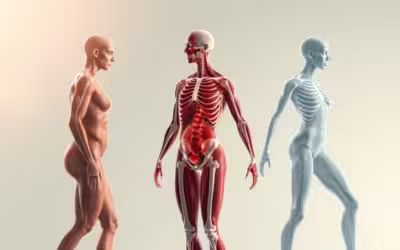Losing weight quickly can seem like an impossible task, but with the right approach, you can shed 10 pounds in just one week. This article will guide you through the science, strategies, and practical tips to achieve rapid weight loss safely and effectively.
The Science Behind Weight Loss
Weight loss occurs when you burn more calories than you consume, creating a calorie deficit. This deficit forces your body to use stored fat for energy, leading to weight loss. The key is to balance caloric intake and expenditure to achieve your desired results.
Is It Safe to Lose 10 Pounds in a Week?
While rapid weight loss can be achieved, it’s important to consider the potential risks and ensure it’s done safely. Losing 10 pounds in a week is an aggressive goal and may not be suitable for everyone. Consulting with a healthcare professional before starting any rapid weight loss program is advisable.
The One Simple Trick: Caloric Deficit
What is a Caloric Deficit?
A caloric deficit is the cornerstone of weight loss, achieved by consuming fewer calories than your body needs. This can be done by reducing food intake, increasing physical activity, or a combination of both. Understanding how to create and maintain a caloric deficit is essential for effective weight loss.
How to Calculate Your Caloric Needs
Understanding your basal metabolic rate (BMR) and activity level is crucial for determining your daily caloric needs. Your BMR is the number of calories your body needs to maintain basic physiological functions at rest. By factoring in your activity level, you can calculate the total number of calories you need to maintain your current weight and create a plan to reduce it.
Nutrition Strategies for Rapid Weight Loss
High-Protein, Low-Carb Diet
A high-protein, low-carb diet can help you feel full longer and reduce overall calorie intake. Protein is essential for muscle maintenance and repair, while reducing carbs can help decrease water weight and reduce bloating. Incorporating lean proteins, such as chicken, fish, and legumes, can support your weight loss goals.
Importance of Hydration
Staying hydrated is essential for weight loss, as it helps control hunger and supports metabolic processes. Drinking water before meals can help you feel fuller and reduce calorie intake. Additionally, proper hydration aids in digestion and the elimination of waste products from the body.
Avoiding Sugary and Processed Foods
Cutting out sugary and processed foods can significantly reduce your calorie intake and improve overall health. These foods are often high in empty calories and low in nutritional value. Opting for whole, unprocessed foods like fruits, vegetables, and whole grains can provide essential nutrients while keeping calorie intake in check.
Exercise: Boosting Your Caloric Burn
High-Intensity Interval Training (HIIT)
HIIT workouts are an effective way to burn calories quickly and improve cardiovascular health. These workouts involve short bursts of intense exercise followed by periods of rest or low-intensity exercise. HIIT can help you burn more calories in a shorter amount of time compared to traditional cardio exercises.
Strength Training
Incorporating strength training into your routine can help build muscle and increase your resting metabolic rate. Muscle tissue burns more calories at rest than fat tissue, so increasing muscle mass can help you burn more calories throughout the day. Exercises like weightlifting, resistance bands, and bodyweight exercises are effective for building muscle.
Daily Activity and Movement
Increasing your daily activity levels, such as walking or taking the stairs, can contribute to your overall calorie burn. Simple changes like standing instead of sitting, taking short walks during breaks, and incorporating more movement into your daily routine can add up and support your weight loss efforts.
The Role of Sleep and Stress Management
Importance of Quality Sleep
Getting enough quality sleep is crucial for weight loss, as it helps regulate hunger hormones and supports recovery. Lack of sleep can lead to increased levels of ghrelin, the hormone that stimulates appetite, and decreased levels of leptin, the hormone that signals fullness. Aim for 7-9 hours of sleep per night to support your weight loss goals.
Managing Stress for Better Results
Chronic stress can hinder weight loss efforts, making stress management techniques essential for success. Stress can lead to emotional eating and increased cravings for high-calorie foods. Incorporating stress-reducing activities like meditation, deep breathing exercises, and regular physical activity can help manage stress and support weight loss.
Monitoring Progress and Staying Motivated
Tracking Your Food and Exercise
Keeping a food and exercise journal can help you stay accountable and make necessary adjustments. Tracking what you eat and your physical activity can provide insights into your habits and help you identify areas for improvement. There are many apps and tools available to make tracking easier and more convenient.
Setting Realistic Goals
Setting achievable goals and celebrating small victories can keep you motivated throughout your weight loss journey. Break down your overall goal into smaller, manageable milestones and reward yourself for reaching them. This can help maintain motivation and make the process more enjoyable.
Seeking Support and Accountability
Having a support system or accountability partner can provide encouragement and help you stay on track. Sharing your goals with friends, family, or a weight loss group can create a sense of community and provide the support you need to stay committed to your plan.
Potential Risks and Considerations
Recognizing the Signs of Overtraining
Overtraining can lead to injury and burnout, so it’s important to listen to your body and rest when needed. Signs of overtraining include persistent fatigue, decreased performance, and increased susceptibility to illness. Incorporating rest days and allowing time for recovery is essential for long-term success.
Understanding Nutritional Deficiencies
Rapid weight loss can sometimes lead to nutritional deficiencies, making it important to maintain a balanced diet. Ensure you are getting enough essential nutrients, such as vitamins, minerals, and fiber, to support overall health. Consulting with a nutritionist or dietitian can help you create a balanced meal plan.
Consulting with Healthcare Professionals
Before starting any rapid weight loss program, it’s advisable to consult with a healthcare professional to ensure it’s safe for you. They can provide personalized advice and monitor your progress to ensure you are losing weight in a healthy and sustainable way.
Potential Risks and Considerations
While losing 10 pounds in a week is possible, it’s important to focus on sustainable habits for long-term success. Rapid weight loss can be a great jumpstart, but maintaining a healthy lifestyle with balanced nutrition, regular exercise, and proper self-care is key to keeping the weight off and improving overall health.
Frequently Asked Questions (FAQ)
1. Is it really possible to lose 10 pounds in a week?
Yes, with a strict caloric deficit and increased physical activity, it is possible, but it should be done safely.
2. What is a caloric deficit?
A caloric deficit occurs when you consume fewer calories than your body needs to maintain its current weight.
3. How can I calculate my daily caloric needs?
You can calculate your daily caloric needs by determining your basal metabolic rate (BMR) and factoring in your activity level.
4. What foods should I avoid to lose weight quickly?
Avoid sugary and processed foods, as they are high in calories and low in nutritional value.
5. What types of exercise are best for rapid weight loss?
High-Intensity Interval Training (HIIT) and strength training are effective for burning calories and building muscle.
6. How important is hydration in weight loss?
Hydration is crucial as it helps control hunger and supports metabolic processes.
7. Can lack of sleep affect my weight loss efforts?
Yes, poor sleep can disrupt hunger hormones and hinder weight loss progress.
8. How can I manage stress to improve weight loss?
Techniques like meditation, deep breathing, and regular exercise can help manage stress.
9. What are the risks of rapid weight loss?
Potential risks include overtraining, nutritional deficiencies, and the possibility of regaining weight quickly.
10. Should I consult a healthcare professional before starting a rapid weight loss program?
Yes, it’s advisable to consult with a healthcare professional to ensure the program is safe for you.





0 Comments